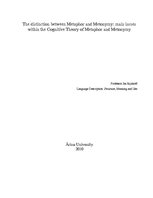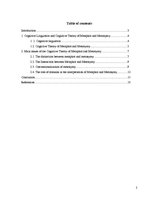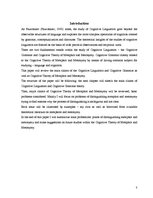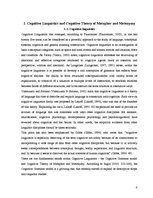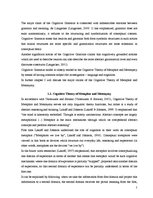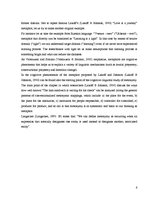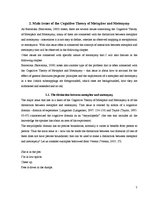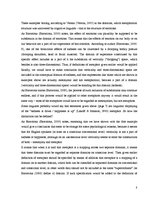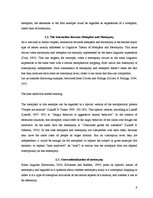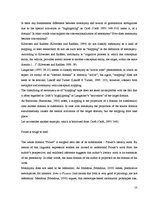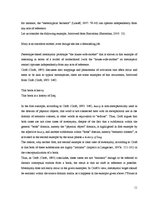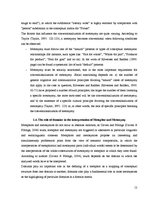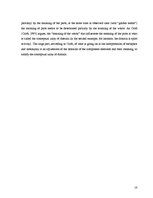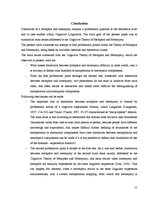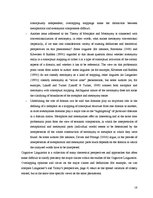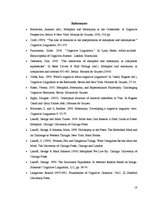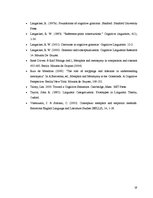There are two fundamental stands within the study of Cognitive Linguistics – the Cognitive Grammar and Cognitive Theory of Metaphor and Metonymy. Cognitive Grammar closely related to the Cognitive Theory of Metaphor and Metonymy by means of having common subject for studying – language and cognition.
This paper will review the main claims of the Cognitive Linguistics and Cognitive Grammar as well as Cognitive Theory of Metaphor and Metonymy.
The structure of the paper will be following: the next chapter will sketch the main claims of Cognitive Linguistics and Cognitive Grammar theory.
Then, major claims of Cognitive Theory of Metaphor and Metonymy will be reviewed; basic problems considered. Mainly I will focus on problems of distinguishing metaphor and metonymy trying to find reasons why the process of distinguishing is ambiguous and not clear.
Each issue will be illustrated by examples – my own as well as borrowed from available theoretical literature on metaphors and metonymy.
In the end of this paper I will summarize main problematic points of distinguishing metaphor and metonymy and make suggestions on future studies within the Cognitive Theory of Metaphor and Metonymy. …
